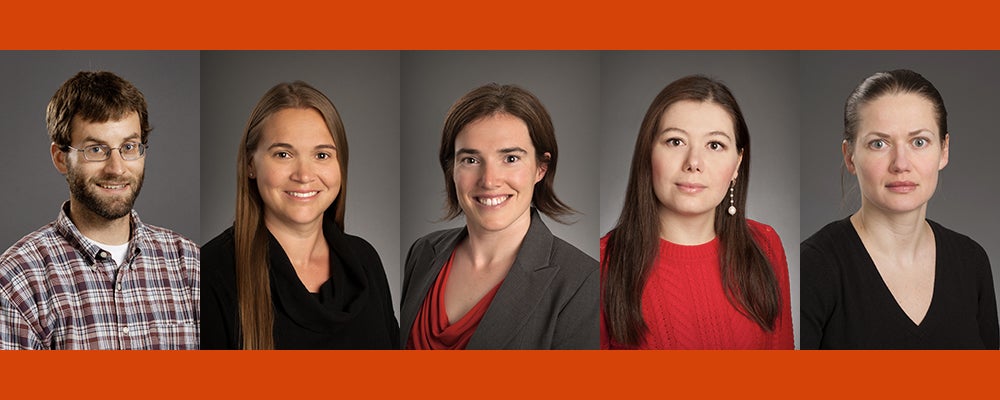The word “supercomputer” evokes images of massive walls of computers that are both efficient and have the potential to process extremely complicated tasks with ease. Supercomputers have become ubiquitous with problem solving some of the world’s most pressing challenges. However, supercomputers can only accomplish tasks efficiently if the coding of the scientific applications they run is optimized for performance. Unfortunately, many of them are not.
“Scientific applications operate inefficiently in that they typically perform operations at less than 30 percent of the potential maximum rate, and often less than that,” said Cathie Olschanowsky, an assistant professor of computer science.
As Olschanowsky points out, high-functioning supercomputing resources are extremely expensive to both build and operate. This inefficiency in terms of energy usage and performance not only ultimately slows advances in potentially world-changing research and science, it also wastes money and resources.
To take supercomputing applications to new levels of efficiency, Olschanwosky has been awarded a National Science Foundation CAREER Award of more than $540,000 over a period of five years. Her research aims to decrease the execution time of scientific applications without requiring large code rewrites.
Olschanowsky’s goal is to develop an innovative compiler infrastructure that exposes optimization opportunities. A compiler is a tool that translates applications from high-level human readable languages to a low-level series of machine operations. During this translation, there are many opportunities to change the code to be more efficient but as of now, they are off-limits to all but the most sophisticated programmers.
“I started research in high performance computing by evaluating the performance of applications. I am very excited to use that work to automatically rewrite portions of applications to make them more efficient,” said Olschanowksy.
A critical component of Olschanowksy’s research is her outreach to local at-risk teenagers. Working with Marian Pritchett School, a high school for pregnant teenagers in Boise, Olschanowksy and her students will open educational doors for teens who might otherwise not have the opportunity to experience higher education and computer science. This grant-supported work will build off of Olschanowsky’s earlier educational outreach efforts with students, in which students had the opportunity to develop novel apps that offer assistance and support for parenting teens like themselves.
“My education plan is to expose at-risk teens to the fun puzzles in computer science. The activities planned for the teens are delivered by university students that share their own path to STEM. The university students will explore ways to make STEM more inclusive, hopefully increasing the retention of underrepresented groups in computer science,” said Olschanowsky.
Olschanowksy is one of five College of Engineering faculty awarded a NSF Career Award in 2020. Go here to learn more.

From the left, Mike Hurley, Cathie Olschanowsky, Clare Fitzpatrick, Francesca Spezzano and Elena Sherman.
Photos by Boise State Visual Services
